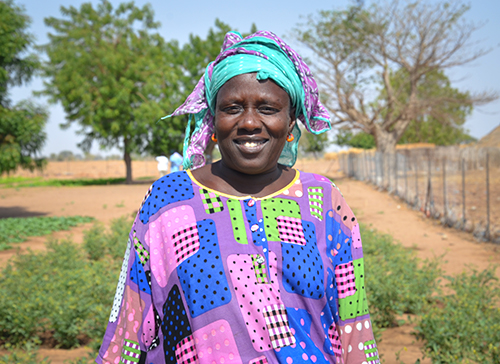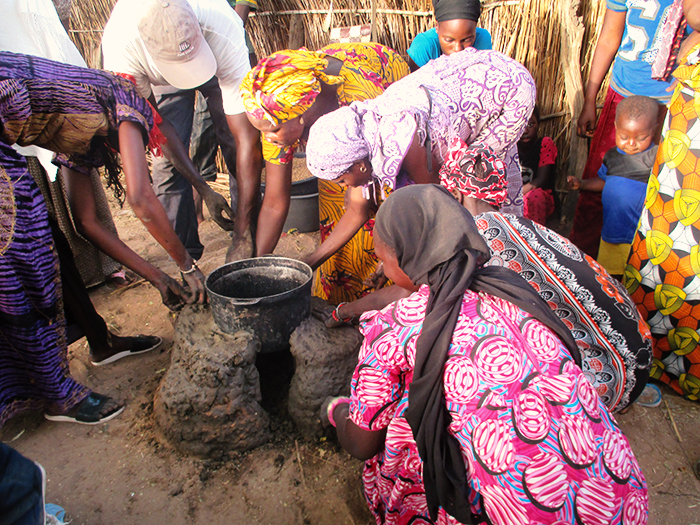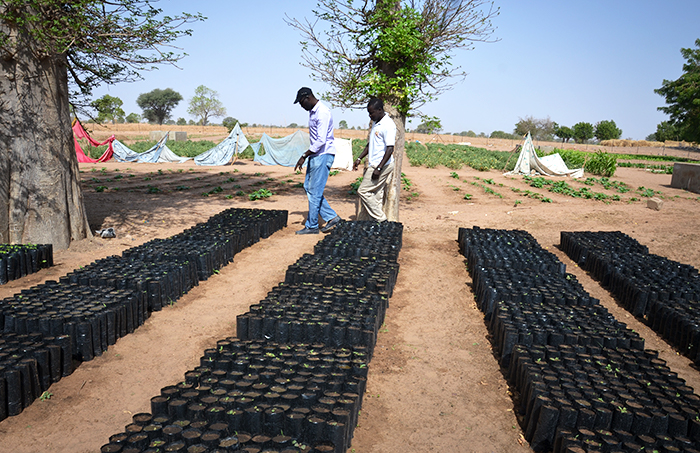The impacts of climate change, such as increasing desertification and decreasing annual rainfall, have taken a toll both socially and environmentally on rural communities in rural Senegal. However, people are fighting back by developing sustainable practices in their lives, such as annual tree-planting campaigns. Reforestation is a significant component of the climate change mitigation strategy.
Large clouds roll in from the horizon, promising rain in a land that only knows the sun for almost nine months out of the year. Senegal’s rainy season runs from late June to late September. During this time of year, CREATE!‘s partner communities participate in an annual tree-planting campaign. The Government of Senegal’s Department of Water and Forestry provides the tree saplings for the campaign and has also established tree nurseries in two of the CREATE!‘s larger communities. The saplings are distributed throughout CREATE!‘s 15 partner communities so each will plant about 3,000 trees. This year, we have two new communities participating in the annual tree-planting campaign: Diabel and Yougoure.
Diabel’s First Tree-Planting Campaign

Khady Ndiaye, Diabel’s first cooperative garden president.
Meet Khady Ndiaye, a mother of nine and Diabel’s first garden cooperative president. As president, Khady oversees her community’s cooperative garden activities as they attend agricultural training with CREATE!‘s technicians. This year she will help with her Diabel’s tree-planting campaign, and they will plant a variety of different trees. “It is the first time we have a tree-planting campaign! I hope that our village will become an oasis,” she tells us.
Benefits of Reforestation
However, aside from providing fruits, nuts, and firewood, trees help alleviate the effects of climate change. They play a significant role in improving soil conditions, regulating temperatures, and improving air quality. According to the Vox article, “Reforestation may be one of our most powerful weapons in alleviating climate change”, trees are about 50% Carbon. The report also states that most of that Carbon is absorbed from the air and therefore regulating harmful emissions produced by our consistent use of fossil fuels.
Along with carbon reduction, the article also describes how trees play a role in regulating the weather. CREATE!‘s rural communities experience a decrease in temperatures with more trees. Controlling temperatures is essential as many of these communities, like Diabel, experience extreme heat for over half the year. After working in a community garden all day, who wouldn’t want to rest peacefully in the shade of a large tree?
Maintaining Trees After the Campaign
Towards the end of September, rainclouds will begin to dwindle and be replaced with blue skies and hot rays from the sun again. However, even without the rain Khady and her community will be able to sustain these trees throughout the dry season. At the end of 2018, CREATE!‘s technicians successfully rehabilitated Diabel’s well. They installed a solar-powered pumping system, and by January 2019 Diabel had access to abundant clean water! “We use the well water for drinking and gardening,” Khady describes. Even in the heart of the dry season, Khady and her community can rely on their solar-powered pumping system to provide water.
Saving Trees with More Sustainable Practices
“Planting trees is very beneficial because we will always need wood,” Khady explains. Khady and her garden group know that it is essential to plant more trees than they use. In rural Senegal, women often use 10 or more pieces of firewood while cooking their meals over open fires. However, with CREATE!‘s improved cookstove, women use 60-70% less wood. “We no longer need to walk many miles for collecting firewood,” Khady says.

Women in Diabel participate in improved cookstove training with CREATE!’s technicians. After training, women can build their own improved cookstoves in their kitchens.
Improved cookstoves are made from free, locally available materials. It’s outer walls shelter the flame and enclose the heat, offering more security and faster cooking time. Khady has one cookstove in her kitchen. Previously, she tells us, she spent a lot of time in the kitchen when she used a traditional open fire. However, today, with the improved cookstove, she spends less time in the kitchen and has more time to focus on her job as garden president.
Making sustainable practices a part of daily life is key to alleviating the effects of climate change. From planting trees to incorporating renewable energy into day to day activities, Diabel and other communities across rural Senegal are working together to mitigate a global challenge. Consider supporting these communities’ efforts to alleviate climate change by donating to this year’s tree-planting campaign. Global challenges need global solutions.

